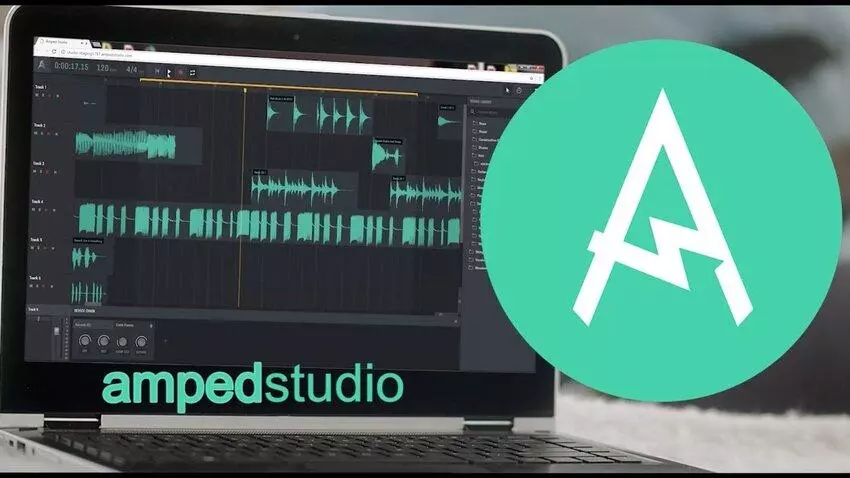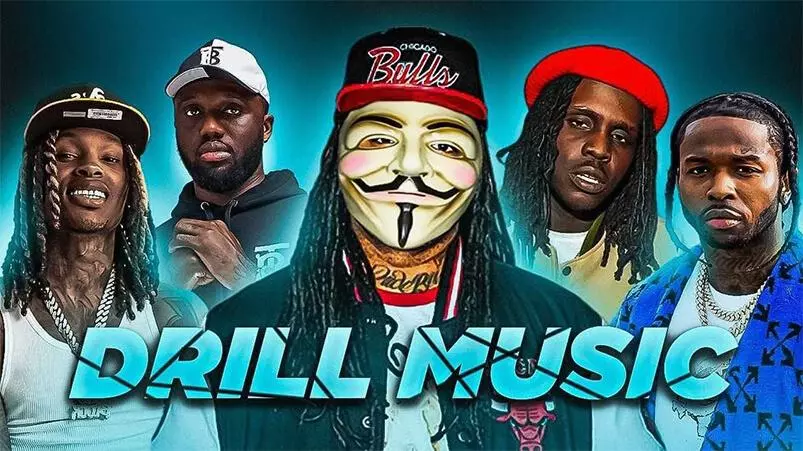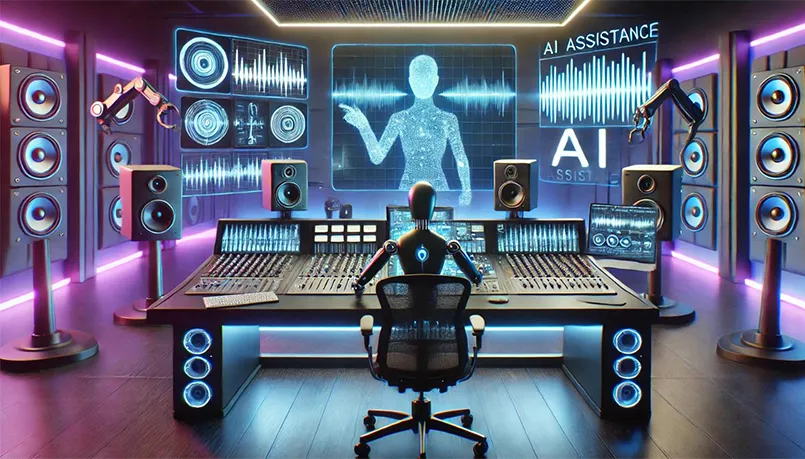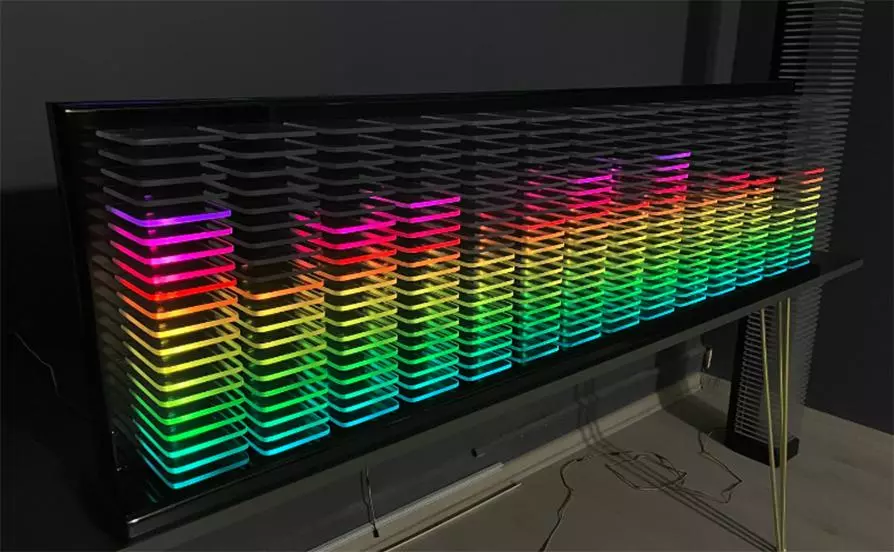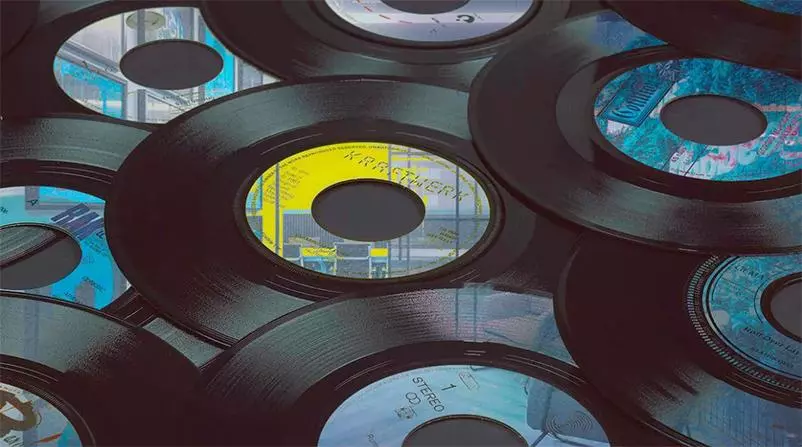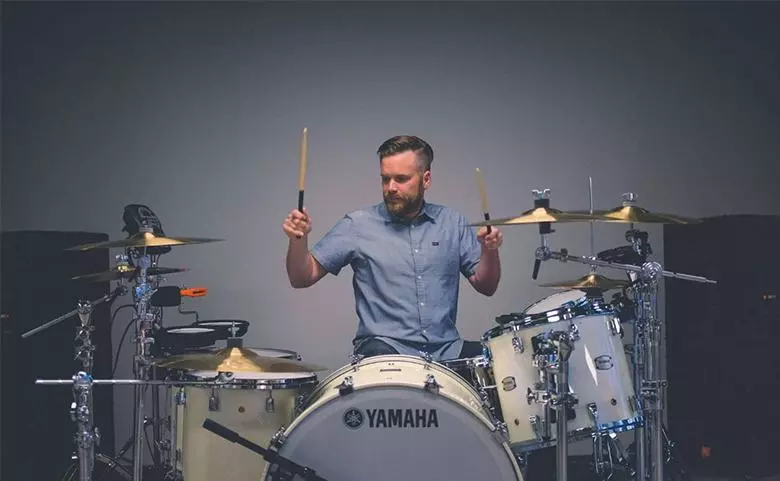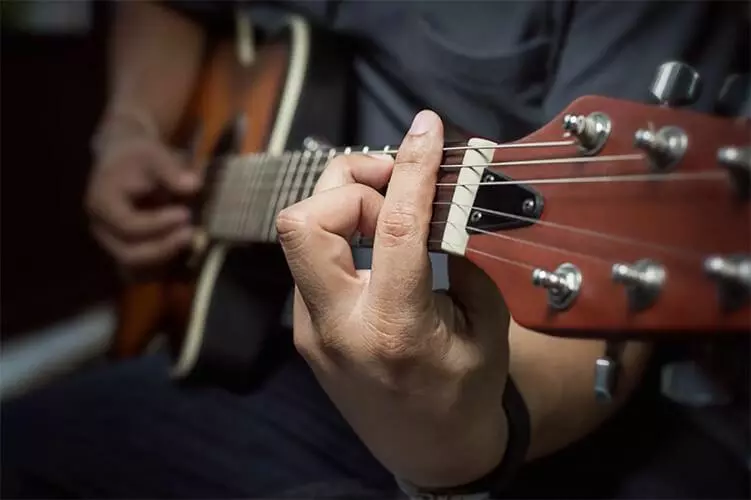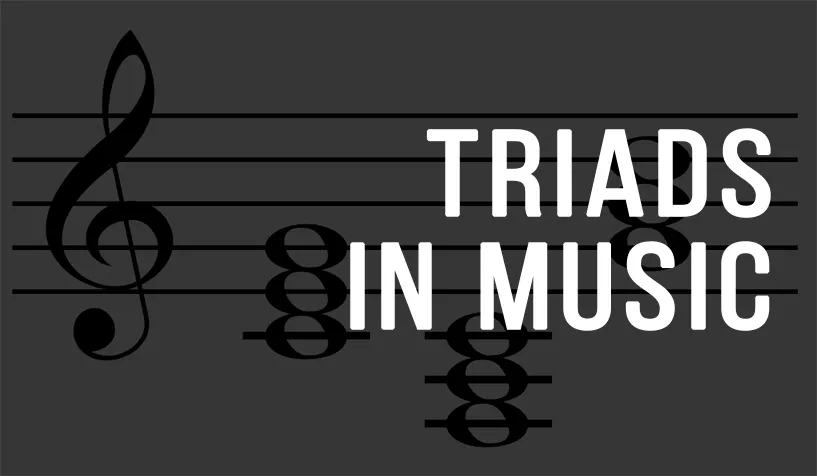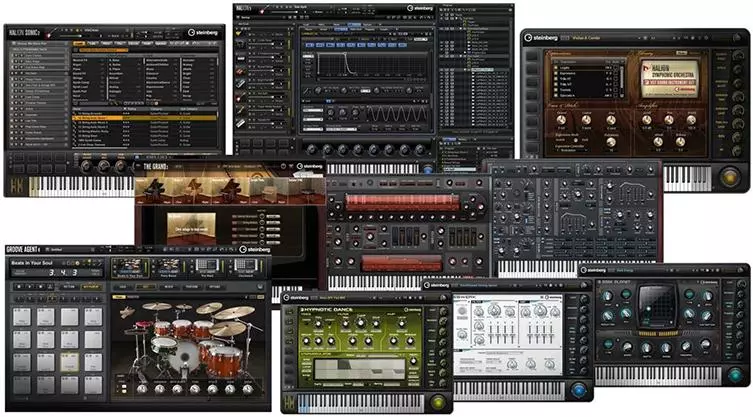Collecting royalties
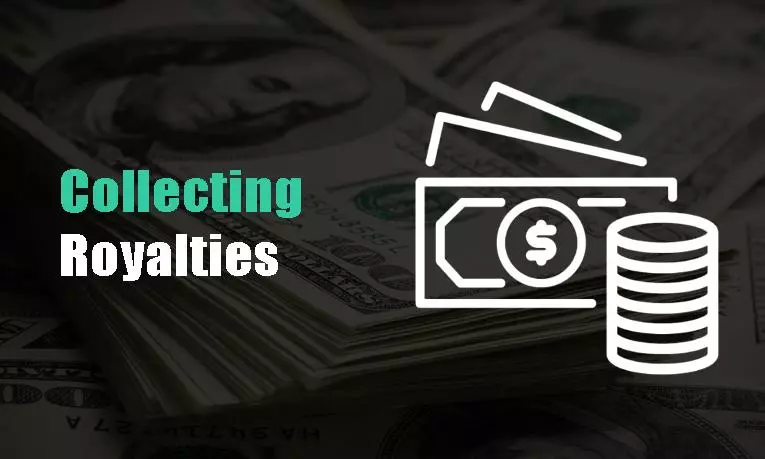
Royalties are remuneration that authors and creators receive for the use of their creative works, including music, literature and art. In this article, we’ll look at the basics of royalties, how they work, and how to earn royalties for your music.
What is royalty?
Royalties are remuneration paid to the author or rights owner for the use of his creative work. The royalty amount can be set as a flat fee or based on the number of sales, views or plays.
How royalties work in the music industry
In the music industry, royalties are paid to authors, performers, music labels and distributors for selling recordings, broadcasting songs on radio and the Internet, and using music in films, advertising and other projects.
Receiving royalties for music
To start receiving royalties, you need to enter into an agreement with a music label or distributor who will promote and sell your music. The contract should specify the terms of use of your music, the amount of royalties and how they will be paid, as well as the label’s promotional responsibilities.
A 2015 Berkeley College of Music study found that between 20% and 50% of royalties never reach their rightful recipients. Each song has over 900,000 potential royalty plays associated with it. How can you ensure your work is properly recorded and you receive all the royalties you deserve? Continue researching global music rights and you’ll realize the difference between “artists” and “songwriters” is critically important as the payout terms for each category vary significantly.
With the advancement of digital technology, tracking royalties has become easier, although the number of platforms for music consumption has increased, leading to an increase in royalty streams. Today, despite the decline in physical sales and the shift to streaming, it is possible to manage and track royalties more effectively.
For independent artists not affiliated with labels or publishers, it is important to understand royalty mechanisms and how to obtain them. Let’s figure out how it works.
First you need to understand some terms:
Artist
Performers create musical works. Rihanna, for example, is a performer. Her hit “Diamonds” was not created by her, therefore she is not the author of this song. Music labels are in the business of representing artists. Be it a music group, a rap artist or a soloist, they all fall under the category of artists. In most cases, the name indicated on the album cover belongs to the artist of the work.
Song’s author
Composers create musical works. For example, the song “Diamonds” was created by four composers: Sia Furler, Benjamin Levine, Mikkel S. Eriksen, and Thor Erik Hermansen. Music publishers are engaged in representing the interests of the authors of compositions. The composer receives royalties for the use of his work.
Sound recording
Many people refer to this as a “master record”. This is the final version of the audio recording. Track after mastering. In traditional practice, labels that own the master have the right to receive revenue from the recording. It is important not to confuse sound recordings with compositions. It is the artists who create the sound recordings.
Compound
This is a composition, not a sound recording. Music publishers, being the owners of musical works and protecting the interests of composers, receive royalties. Composers create musical works.
PRO
Performing Rights Organizations (PROs) in various countries, such as ASCAP, BMI, SESAC, and Global Music Rights (GMR) in the US, SOCAN in Canada, and PRS in the UK, play a key role in the music industry. They are responsible for collecting royalties from various platforms such as radio stations, streaming services, TV channels and public places that need to obtain a license to play music. These funds are then distributed to songwriters and publishers based on the frequency of public performances of each work, ensuring fair compensation for their creative contributions. Payments are divided equally between publishers and songwriters – 50% each. While ASCAP and BMI are non-profit organizations open to all interested songwriters in the United States, SESAC and GMR operate on a commercial basis and require songwriters to receive a special invitation or approval for membership application.
ASKAP
The American Society of Composers, Authors and Publishers (ASCAP) represents the interests of more than 700,000 members, including songwriters and publishers, managing a catalog of over 10 million pieces of music. The organization is owned and operated by its members, with a board of directors elected from among songwriters and publishers. In 2018, ASCAP made over a billion dollars in payouts, covering a creative spectrum of songwriters across genres and generations. Featured authors include world-famous stars such as Katy Perry, Dr. Dre, Marc Anthony, Chris Stapleton and Ne-Yo, as well as legendary figures such as Lauryn Hill, Jimi Hendrix, Bill Withers, Carly Simon, Quincy Jones, Marvin Gaye, Stevie Wonder, Duke Ellington and many others, including Ari Herstand.
BMI
Broadcast Music, Inc. (BMI) is associated with more than 800,000 members, including songwriters and publishers, managing a portfolio of over 10.5 million musical works. The organization represents a wide range of authors, from modern stars to music industry legends. Among them are Taylor Swift, Lil Wayne, Mariah Carey, John Legend, Lady Gaga and Eminem, as well as groups and performers of different genres and generations, such as Maroon 5, Michael Jackson, Linkin Park, Sam Cooke, Willie Nelson, Loretta Lynn, Dolly Parton, Fats Domino, Rihanna, as well as famous composers John Williams and Danny Elfman.
SESAK
SESAC is not an acronym and has over 30,000 members, including songwriters and publishers, and manages a portfolio of over 400,000 pieces of music. Among them are prominent musical figures, including Bob Dylan, Neil Diamond, Rush, Zac Brown, Hillary Scott of Lady Antebellum, the Evett Brothers, gospel singer Shirley Caesar, famous musician Paul Shaffer and the performers who made Thompson Square famous.
GMR
Founded in 2013 by industry mogul Irving Azoff, Global Music Rights (GMR) is an exclusive, invitation-only, commercial organization. GMR’s distinctive feature is its focus on serving an elite circle of performers, including such international celebrities as Bruno Mars, Bruce Springsteen, Drake, Eagles members Don Henley, Glenn Frey, and Joe Walsh, as well as John Mayer, legends John Lennon and Smokey Robinson, rock icons Jon Bon Jovi and Prince, guitar virtuoso Slash, as well as Leon Bridges, Ari Levine, and Pharrell Williams. GMR’s catalog of titles includes more than 33,000 songs, and the organization employs approximately 100 authors and 200 publishers, striving to generate maximum revenue for its narrow circle of clients. It is important to note that songwriters cannot be registered with multiple performing arts organizations at the same time; the choice must be made in favor of one of them, for example, preference may be given to ASCAP in comparison with other similar organizations.
Performing rights organizations in your country
It is important to emphasize that in order to become a member of ASCAP as a songwriter, you must also register what is called a “personal publishing company.” To do this, just come up with a name for your publishing company (mine, for example, is Proud Honeybee Music) and register it with ASCAP. This is necessary to receive all possible royalties. If your publishing company is not organized as a legal entity (such as an LLC) or if you do not have a bank account in its name, be sure to indicate to ASCAP that you are “acting on behalf” of your publishing company so that they can process payments correctly. A direct deposit option is also available, which greatly speeds up the payout process. ASCAP splits the royalties, giving 50% to the songwriter and 50% to the publisher. If you don’t register a publishing company, you risk receiving only half of the funds you are owed.
For independent songwriters registered with BMI, there is no need to set up a publishing company as BMI will pay you 100% of the royalties.
However, if you register with a publishing company that manages copyrights (such as Songtrust, Sentric, CD Baby Pro or TuneCore Publishing), they will receive your publishing royalties from your artist rights organization and retain a set commission percentage (15-20% ) and transfer the remaining funds to you. In this case, there is no need to register a personal publishing company (if you are in ASCAP), register it as an LLC, or open a specialized bank account, which is a more convenient and less expensive solution.
Digital distribution company
They are sometimes called digital content distributors. They get your music onto Spotify, Apple Music, Amazon, YouTube Music, Deezer, Tidal and other digital stores and streaming services on over 80 platforms worldwide.
HFA
Harry Fox Agency. Prior to 2021, many digital services (DSPs) used the services of the Harry Fox Agency (HFA) to handle the mechanical licenses needed to distribute songs on their streaming platforms. However, in 2021, the Mechanical Licensing Collective (MLC), created by law, became the only body authorized to administer a new type of comprehensive licenses for interactive streaming and download services (that is, the MLC now manages all mechanical rights revenue for streaming from the United States). HFA continues to operate as a private organization providing a wide range of music licensing services, including physical media management, download licensing and royalty distribution services.
MLC
As 2021 began, the Mechanical Licensing Collective (MLC) was established under the auspices of the US government to collect mechanical rights using music on streaming platforms in the US. The MLC is the only authority in the United States tasked with collecting payments for mechanical reproductions of musical works. Receiving these payments is only possible if you register with the MLC either independently or through your publisher.
Admin publishing companies
The term “admin” briefly means “administration”. Publishing houses have an administrative sector; in addition, there are departments for license synchronization, A&R and others. In the last decade, dedicated administration publishers have emerged on the scene with the goal of helping little-known songwriters (like you and me) collect all their due royalties around the world.
Companies like Songtrust, Sentric, CD Baby, TuneCore and Audiam provide publishing administration services and are open to working with a wide range of clients. For authors with more significant influence, more exclusive organizations like Kobalt, PEN, Riptide or Secret Road are suitable, which, although they perform the functions of standard publishers, base their activities on administrative services and work for a percentage of income, without claiming ownership rights, unlike from classic publishing houses.
Licensing Synchronization
The term “sync” refers to the process of combining music with visual content, requiring special permission known as a sync license. This permission is required for anyone who wishes to use a piece of music in television programs, films, advertising or video games in combination with visuals. Platforms like YouTube, Facebook and Instagram are also subject to this requirement and have agreements with major and many independent publishers to legalize cover versions on their properties. It is these agreements that allow authors and publishers to receive income from the use of their music in cover videos. YouTube has been a pioneer in tracking and monetizing user-generated content with its Content ID system, even offering to share revenue from cover songs with publishers and content creators.
For those interested in monetizing their videos on Facebook, you will need to register for the Facebook Creator Program. As of mid-2019, creators were required to have at least 10,000 page followers, 30,000 views of at least one minute in the previous 60 days, a page with a positive reputation, and be located in a country supported by Facebook’s monetization system.
Licensed company/sync agent
Sync companies, sometimes called sync agents, work to place your music in a variety of media formats, including TV shows, movies, commercials, and video games. They usually represent musicians who are both performers and authors of their songs. These agents offer a key service for music supervisors, aiming to simplify the licensing process for advertising agencies or TV productions. They are able to get songs into the hands of music directors quickly, so if your work is shared with someone else, make sure you don’t have any arrangements with third-party publishers, as this may make it difficult to work with a sync agent or use the song in question.
REMEMBER: Do not pre-pay the sync agent to offer services. If they value your music, they will suggest you and earn you a commission, which is usually between 25% and 50% of the upfront fee. Additionally, there are companies and music libraries like Triple Scoop Music or Audiosocket that offer affordable sync licenses for wedding photographers, corporate video and independent film projects. This is a great opportunity for extra income, although it won’t lead to big deals like Verizon, but offers from wedding photographers for $60 to license your song can generate consistent income.
Do your research by searching for things like “wedding video music” or “licensed indie film music.” These companies will appear in your search results. They are careful about the quality of the songs they offer, but are open to new artists if your work meets their requirements. Most of them do not require exclusivity, allowing you to work with several agencies at the same time.
Don’t pay in advance. Any company that requires upfront payment for such services is likely engaging in fraud. If you encounter such a situation, please share information to warn others.
SoundExchange
There is often confusion between SoundExchange and artist rights organizations (PROs), when in fact SoundExchange has a specialized function in protecting the rights of artists and labels, as opposed to PROs, which focus on songwriters and publishers. When discussing PROs, most people in the industry usually think of organizations like ASCAP, BMI, SESAC, SOCAN, but not SoundExchange.
SoundExchange uniquely represents artists and music labels, specifically collecting rewards for the use of their “non-interactive” digital audio recordings, where users cannot select specific tracks. Examples of non-interactive services include SiriusXM radio, while services like Apple Music and Spotify are interactive. SoundExchange works with a number of international partners to collect rewards for music usage outside the United States.
Unlike PROs, which license a wide range of music uses (digital, terrestrial radio, live performances), SoundExchange focuses exclusively on digital payouts. Current US law requires terrestrial radio stations to pay only for compositions, not recordings, which is the subject of debate and proposals for change, but so far Congress has not passed the corresponding amendments.
SoundExchange is a key player in collecting royalties for non-interactive digital use of sound recordings in the US, although not all digital radio services work through it, preferring to negotiate directly with labels and distributors.
How to register with SoundExchange or your country’s neighborhood advocacy organization
For American artists, SoundExchange.com is a place where you can claim your rights as an artist and recording owner. If you are an independent artist who is not signed to a label, simply check the “Both” option during the role selection step of the registration process. Expect that filling out all the information will take some time, perhaps even the entire weekend, especially when you need to prepare a detailed catalog of your work. But the effort will definitely pay off.
If you are located outside the US, registration with SoundExchange is not required. Instead, you should contact your local neighborhood rights organization.
Interesting tidbit: One Ari’s Take reader and children’s musician, Andy Mason, was advised to sign up for SoundExchange, and his first check turned out to be for $14,000 to play his songs on Pandora children’s channels that he didn’t even know existed. SoundExchange keeps the royalties you earn for three years, so don’t waste time and sign up as soon as possible. Also make sure you are registered as the owner of the record, as previously this was a separate item and you may have missed out on the opportunity to receive the full amount of money.
Why does only 45% go to the performer? Because an additional 5% is reserved for session musicians. If you are a session musician, you are entitled to a portion of this income. Contact the AFM (Musicians’ Union) to find out how to obtain one.
So the breakdown of royalties on SoundExchange is 45% to the artist, 50% to the recording owner (either the label or you if you’re self-publishing), and 5% to the session musicians. Even if your project did not involve session musicians, SoundExchange will still set aside 5% of the royalties for them. Artists outside the United States should register with the appropriate organization in their country to protect neighboring rights.
Backup musicians and session players
If you contributed to an album as a session musician and the album was released by an American Federation of Musicians (AFM)/SAG-AFTRA-registered label, you are entitled to a variety of royalties, not just through SoundExchange. You should definitely check the AFM Foundation and SAG-AFTRA website to see if any royalties owed to you remain unpaid.
Neighboring Rights
Most countries outside the United States have a system known as “neighbor rights.” Although in American English it might be written as “neighborly rights”, in practice it is common in Europe and beyond. These rights are similar to those managed and collected by SoundExchange (recording performance royalties for artists and labels), but they also include fees for performing music on terrestrial radio, television, cafes, jukeboxes, and anywhere in the physical world. In the UK, PPL is responsible for this, and in Canada, Re:Sound. To find out how to receive music royalties in your country, just search for “neighbor rights + your country.” Residents outside the US do not need to register with SoundExchange. Instead, you should register with your country’s neighborhood rights organization to receive royalties from recordings. Most of these organizations partner with SoundExchange to collect royalties in the US.
The Best Way to Get Maximum Music Royalties (For You)
ASCAP vs. BMI
When comparing ASCAP and BMI, both organizations provide similar services to their members, including the same membership and directory size. Both in terms of royalties for music use and other services, both organizations operate similarly, paying royalties every quarter and partnering with a wide range of services and companies. However, it is worth noting the difference in terms of membership: joining ASCAP requires an annual fee of $50, while BMI offers a two-year membership with no initiation fees.
Perhaps the biggest barrier to joining ASCAP is the cost of membership. Founded in 1914, ASCAP has deep knowledge of the music industry and offers an intuitive website interface that is highly valued by its members.
ASCAP or BMI for independent artists
Although there is no cost to join BMI, this is not the only reason for its popularity among independent musicians. The competition between BMI and ASCAP is fierce, and although they are not the oldest players in the field, BMI is widely recognized as a worthy and respected option for a performers’ rights organization.
Artists’ fees
Royalties for digital performance of sound recordings
In the US, payment is collected exclusively from non-interactive digital streams, also known as digital radio. In other countries, revenue comes from a wide range of sources: radio (both digital and analogue), television, jukeboxes, cafes, bars, shops, nightclubs, gyms, educational institutions and any place where the “public performance” of a recording occurs , which are called digital performance royalties.
To receive these payments, contact SoundExchange in the US, PPL in the UK, Re:Sound in Canada, or the appropriate neighboring rights organization in your country.
Download Sales
This happens when your music reaches platforms such as iTunes, Google Play, Amazon and others.
Method of receiving payment: through your distribution company. It’s important to note that if your track is purchased through Bandcamp, the money comes directly from Bandcamp since it is a platform that you manage yourself.
Interactive streaming revenue
Many types of revenue are generated by streaming services. Especially interactive streaming (where the user selects tracks) through platforms such as Spotify, Apple Music, Deezer, Tidal directs revenue to artists or labels. These services are said to give away 70% of their revenue, which is split between artist/label revenue and royalties (including mechanical and performance royalties). However, the share of revenue flowing to artists from streaming exceeds the amount paid to songwriters for mechanical use of their work.
Method of receiving payment: through your distributor.
Income from YouTube recordings
Each video contains different “sources” of income. Here we will briefly discuss how to make money from audio recordings (we will talk about composition later). You can earn royalties on any video that uses your music, even if you didn’t upload the video, as long as you allow YouTube and Facebook to insert ads into those videos (called “monetization”). Videos uploaded by you or created by your fans, such as using your tracks in a cat video, can generate advertising revenue that you can earn as a verified affiliate. YouTube splits ad revenue, giving you 55% and itself 45%. Facebook (including Instagram) does not disclose details of its pricing.
Method of receiving payment: Most distributors offer this function, just activate the appropriate option. If your distributor does not provide such a service, it is possible to work directly with YouTube to become a verified partner, or sign up with a specialized revenue collection company such as Audiam or AdRev. But it is most convenient to manage all processes through one company.
Basic use license
Any TV project, film, commercial, trailer or video game requires two types of licenses to be used legally: a master use license (from the artist or label) and a synchronization license (from the songwriter or publisher). Nowadays, most music supervisors (responsible for selecting music) prefer to pay both licensing fees to indie artists, since they are often both performers and authors of their works.
However, if the artist is represented by a label and publisher, the music supervisor will approach the label for the master license and the publisher for the sync license. The payment amount is usually the same for both cases, although there are exceptions.
How to receive payment: Directly from the broadcaster, advertising agency (for commercials), film producer (for a film or trailer) or video game developer. In this process, it is best to use the services of a synchronization licensing agent.
Remnants of television advertising
If your vocal track ends up in a SAG-AFTRA union ad, you are also eligible for related payments, which can significantly increase your income. For example, appearing in a Bud Light commercial (as an actor) earned me approximately $10,000 per month in SAG-AFTRA income for the duration of the commercial’s airing. During this time, all I needed to do was have fun at a styled picnic with a Lime-A-Rita in hand. If your song with vocals is used in the same advertisement, a similar outcome is possible. The typical lifespan of a commercial is about six months, which could potentially generate up to $60,000 in SAG-AFTRA payments alone. If you are licensing your music for advertising, always check to see if the advertisement is associated with SAG-AFTRA so you can contact the organization to claim music royalties.
Payment Method: Directly through SAG-AFTRA.
However, if SAG-AFTRA does not have your mailing address, they will not be able to determine who to pay the funds to. It is important to contact SAG-AFTRA directly and provide them with all necessary information if your music will be included in a television commercial. However, you do not have to be a member of SAG-AFTRA to receive payment.
Royalties
Royalties for the performance of a composition
Public performance royalties are awarded for playback of music via radio (AM/FM and digital), interactive and non-interactive streaming services (e.g. Spotify, Apple Music, Deezer, Pandora, YouTube Music, Amazon), and live performance at concerts (including your own), in restaurants, bars, shopping centers, cafes and television broadcasts. Any public venue that plays music (live or recorded) is required to obtain a license from a performing rights organization (PRO) to legally use the music.
Surprisingly, movie theaters in the US are exempt from licensing music in films, meaning there are no payments for performing music tracks in films. However, music played in cinema lobbies and toilets is subject to licensing. Film songs earn royalties when films are broadcast on television, but not when they are shown in cinemas.
In an international context, cinemas are required to pay royalties for public performances, which can be a significant source of income. There have been cases where authors received hundreds of thousands of dollars from such payments. In the case of playing music through a radio in a coffee shop, the likelihood of receiving royalties for public performance of your track is small, since PROs may not be monitoring playback at the moment. However, using services like Pandora or SiriusXM, which are connected to and tracked by systems like Muzak, can result in payouts.
The tracking and payment system is being improved and will become more efficient over time. ASCAP and BMI use sampling and electronic monitoring techniques to track music playback and royalty payments. They supplement the collected data with other methods to ensure accuracy.
It is important to register your live performance information with a PRO as this can result in significant payouts. For example, in the UK, PRS pays for concerts without ticket sales and a share of the box office receipts for concerts with tickets sold. Registering your repertoire and venues with PRO can significantly increase your revenue from public performance rights.
How to get paid: your PRO
Mechanical royalties
Mechanical royalties are generated every time a song is streamed, downloaded, or purchased physically, such as on CD or vinyl. In the United States, these fees are regulated by the federal government. In the case of streaming, each streaming service pays directly to the Mechanical Licensing Collective (MLC), established in 2021 to centralize the collection of mechanical royalties in the United States. In 2018, an increase in the mechanical royalty rate was recorded, the first in a long period.
It is noted that in North America (USA, Canada, Mexico), mechanical royalties for iTunes purchases are passed directly to the label or distributor. While in other parts of the world, these royalties are first collected by local collection organizations before reaching the distributor. This results in a difference in sales revenue: in the US you can earn about $0.69 per sale with iTunes, and in the UK you can earn about $0.60.
If you don’t have a publishing company with an administrator, international royalties from download sales may not be received. Many international agencies hold these funds until the publisher explicitly requests them. Instead of contacting collection agencies in different countries yourself, it is recommended to use the services of a publishing administrator, who will take on this task for a commission of 15–25%.
To obtain payment, please contact your publishing company administrator, MLC in the US, or the local mechanical rights organization in your country.
Synchronization license
Like the basic usage license, any TV show, movie, commercial, or video game requires a sync license (sync license for short) to place the composition next to the image.
How to get paid: Directly from a TV studio, advertising agency (for advertising), production company (for a film or trailer) or game company. The best way to do this is to work with a sync licensing company.
How to release cover versions (legally)
If you plan to release your version of someone else’s song, you will need to obtain a mechanical license. Under US law, after the first public release of a composition, anyone can create their own cover version, provided they obtain the appropriate license, without requiring permission from the copyright owner. The process may seem confusing, but it’s actually quite simple and can be done through your digital music distributor. If your distributor does not provide this service, you can always contact Songfile or Easy Song Licensing through HFA to obtain a license.
You did it! You see, everything turned out to be not as difficult as it seemed. Now you are a true professional in the world of music royalties. Share the knowledge you gain with your musician friends. This was certainly a wealth of information, so be sure to bookmark this page for easy access. I also recommend signing up for my email newsletter to receive regular helpful tips straight to your inbox.
FAQ
What is ASKAP?
ASCAP is an association of creative people including songwriters, composers and music publishers. It is a member-controlled organization dedicated to licensing the use of musical works by commercial organizations for public performance. In return, ASCAP collects licensing payments and distributes them as royalties to its members, rewarding them for the creative work and use of their music.
Which song brought in the most royalties?
You probably already know, but we’re talking about the famous “Happy Birthday” song by the Hill Sisters, created in 1893. Warner Chappell purchased the rights to the song for $15 million, and the company still generates $2 million in revenue annually from the tune.
What are royalties in music?
Music royalties are received by songwriters, performers, composers and copyright holders from organizations and businesses that wish to officially use their music in public spaces. This fee is a form of payment for granting the right to publicly perform a work, thereby ensuring a fair distribution of income among all participants in the creative process.
What is PRS?
PRS stands for the Performing Rights Society. If you’re wondering what PRS is, you’ll want to dive deeper into the world of music royalties to make sure you’re always getting your fair share. Every time your work is heard on television, in public places, on the radio or anywhere else, the Society for the Protection of Performing Rights, together with the Mechanical and Copyright Society (MCPS), makes sure that royalties are paid to its members.
What does SESAC stand for?
If you have received an invitation to join SESAC, you may be asking yourself, “What is SESAC?” First of all, please accept our congratulations! Now to the point: SESAC stands for Society of European Stage Authors and Composers. This organization collects royalties for the use of musical works in a variety of contexts and is one of the leaders in this field.
SoundExchange vs BMI – which one to choose?
SoundExchange and BMI are performer rights organizations (PROs) dedicated to collecting royalties from public performances. To take full advantage of song royalty income potential, you must register with both SoundExchange and BMI. SoundExchange specializes in collecting royalties from non-interactive digital platforms such as Pandora and SiriusXM, while BMI focuses on collecting royalties for public performances in venues such as radio airwaves or restaurants.
Why choose BMI Publishing?
To clarify, BMI does not act as a publishing company. It is a music performance rights organization (PRO). However, with BMI you can register your own so-called “vanity” publishing company, thereby having a “publisher”. There is no cost to join BMI, unlike ASCAP, which requires a $50 registration fee. Earlier in the text I mentioned the similarities and differences between ASCAP, BMI and SESAC.
How to become a paid songwriter and receive royalties for songs?
Diving into the world of professional songwriting will expose you to the reality that making money from your compositions does not promise quick riches or an easy path to the stars. Serious dedication, hard work, the need for constant practice, collaboration and perseverance are the ingredients for success in songwriting. It’s also important to securely protect your works and register them correctly so that you can claim royalties, which is what brought you here in the first place.
Sign up for my newsletter and I’ll send you a list of 26 things to do before releasing your music.
How do songwriting royalties work?
There are four main ways to earn income from songwriting: performance royalties, mechanical royalties, sync royalties, and publishing royalties. Mechanical royalties are related to digital sales and amount to 9.1 cents per track, distributed between authors and their publishers. Performance royalties, earned through performing rights organizations (PROs), are paid for live performances, public playing, and broadcasting. Synchronization royalties are awarded to songwriters (or publishers) when their music is licensed for use to accompany video content such as television shows, advertising campaigns, films or video games.


